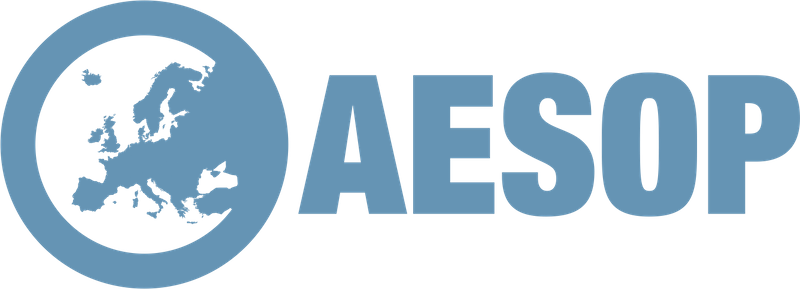New Issue Published - Transactions 9.1
The Future of Spatial Planning in Ukraine
Read more about New Issue Published - Transactions 9.1Transactions of the Association of European Schools of Planning is an international peer-reviewed open-access journal, produced and owned by AESOP, Association of European Schools of Planning.

Transactions of the Association of European Schools of Planning is an international, peer-reviewed, open-access journal, produced and owned by the Association of European Schools of Planning (AESOP). It is free of charge to submit a paper and to publish in the Transactions of the Association of European Schools of Planning. Accepted papers are accessible online, to everyone, for free. All papers are subject to a double-blind peer-review process.
Ukraine faces some of the most extreme conditions to have been experienced in Europe since the Second World War, including the loss of human life, depopulation, forced migration, the destruction of settlements, natural and agricultural areas, and the lack of access to basic services (e.g. water, electricity). These extreme conditions require huge, concerted efforts to promote the country’s recovery, as was also the case in Europe in the second half of the 1940s, when countries were rebuilt after being ravaged by war. At that time, new planning practices were developed in many countries...
This article analyses the challenges of regional reconstruction in scenarios of ongoing conflict and deepens existent understanding of the multivariate patterns of (post-)war spatial policy making. Using a case study approach, the article points to situations where the existing institutional structure of decision-making at the territorial community (hromadas) level cannot overcome all consequences of the war in Ukraine. The paper argues that matching (post-)war reconstruction measures with the new functionalities of hromadas, their institutional capacity, level of destruction,...
This article examines the transformation of Ukraine’s spatial planning system in the context of decentralisation, regulatory reform, and the growing role of local communities in decision-making. It emphasises the significance of comprehensive spatial development plans as instruments of integrated local governance. Using the Chernihiv region as a case study, the paper analyses institutional, financial, and organisational challenges in implementing planning decisions and highlights gaps between legislation and practice. The study stresses the need to align spatial planning with modern...
The challenges facing Ukrainian cities today require a thorough analysis of their socio-economic development. This article proposes developing a clearer toolkit for assessing the ability of individual cities to build their economic capacity and sustainability, based on studying the socio-economic situations of urban territorial communities from different regions within Ukraine. Based on estimates of socio-economic status, an algorithm was worked out to assess this development. Taking into account the integrative nature of urban policymaking, the framework, mechanisms, and instruments of...
In Ukraine, with the Russian invasion that started in 2022 still ongoing, the issue of considering a controlled shrinking strategy has become increasingly urgent when looking at the possible population scenario identified by the Mykolaiv Masterplan. Rather than considering the best-case scenario, we must consider the worst-case and baseline scenarios of demographic change. Planning for stagnation and decline must be prioritised to reduce disparities and enable sustainable development.
This paper presents possible demographic scenarios for Mykolaiv after the war, along with their...
Landscape planning is now a mandatory element of local spatial planning in Ukraine. Introduced as part of recent planning reforms, it is now required in Comprehensive Spatial Development Plans for Hromadas. Based on the German methodological model, the Ukrainian approach has been adapted to local conditions. This article draws on the author’s practical experience to explore how landscape plans are developed and integrated into comprehensive plans. It provides examples from selected Hromadas, analyses how environmental objectives are reflected in final planning decisions, and discusses...
In the face of global crises, resilience is a crucial approach to recovery. Urban resilience frameworks have proliferated in the last three decades, as support for policy-focused guidelines towards sustainable development. However, gaps in the adoption of urban resilience frameworks for local-level urban planning still exist. This study argues whether existing frameworks, despite addressing current global challenges such as climate adaptation or rapid urban growth, are suitable for contexts experiencing conflict. The methodological approach is guided by two themes: 1) How can an urban...
This article analyses the role and content of spatial planning in contemporary higher education in Ukraine. It has been established that the system for training specialists who acquire knowledge across the broad spectrum of issues related to modern understandings of spatial planning is still in the process of formation. Contemporary educational programs related to spatial planning are, in fact, combined with regards to their content. They include educational components of the basic specialty, spatial planning, and other elements designed to attract prospective students. The state...
This paper explores various initiatives that have been implemented with a view to strengthening integrated urban development in Ukraine. It emphasises the importance of actionable knowledge and international academic cooperation and it highlights the challenges posed by Ukraine’s political decentralisation and war-related crises; both have strained urban planning capacities. Programmes such as Ukraine Digital and German- Ukrainian partnerships address these needs through digital education, scholarships, and joint courses. The Competence Platform for Integrated Urban Development presented...
Ukraine is currently in a state of war and is experiencing significant demographic changes as well as shifts in residential living and the organisation of its industries. The impacts of the war will require the rebuilding of the country, and this presents opportunities to improve the living and working environment of Ukrainians while also introducing new sustainable solutions. There is a need to establish new strategies for spatial planning that include new technologies and broad public participation through the development of National Spatial Data Infrastructure. This paper explores the...
The Future of Spatial Planning in Ukraine
Read More Read more about New Issue Published - Transactions 9.1AESOP Archive by AESOP
plaNext by Young Academics
Booklet Series by Young Academics
docomomo journal by docomomo

open access facilitated by SOAP | Stichting OpenAccess platforms
